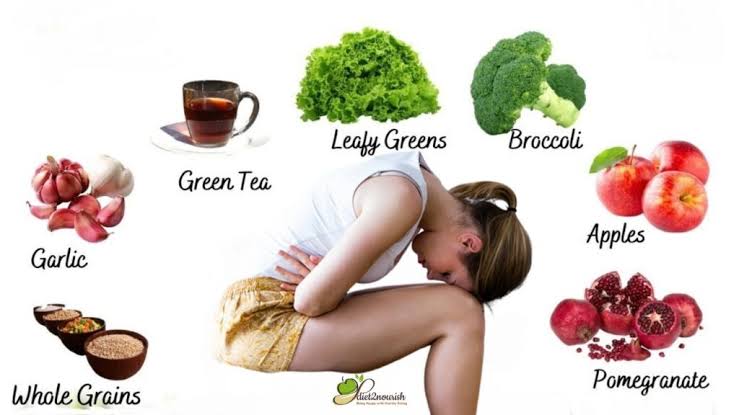- Get link
- X
- Other Apps
JUST IN
- Get link
- X
- Other Apps
 Peptic ulcers are caused by long-term use of certain medications, as well as the bacterium Helicobacter pylori (H. pylori), an infection that requires treatment with antibiotics. However, following an ulcer diet can help reduce the pain and irritation associated with these sores on the lining of the stomach, esophagus, or small intestine.
Peptic ulcers are caused by long-term use of certain medications, as well as the bacterium Helicobacter pylori (H. pylori), an infection that requires treatment with antibiotics. However, following an ulcer diet can help reduce the pain and irritation associated with these sores on the lining of the stomach, esophagus, or small intestine.ULCER DIET ;
- Correct nutritional deficiencies that contribute to your symptoms
- Provide the protein and other nutrients your body needs to heal
- Help you avoid foods that irritate the ulcer
FOODS TO EAT INCLUDE
VEGGIES : Leafy greens, bright red and orange vegetables, and cruciferous vegetables (like broccoli, cauliflower, and kale) are packed with vitamins and antioxidants that are especially good for your overall health and healing.
GRAINS: Whole grain breads, and whole or cracked grains like oats, quinoa, farro, millet, or sorghum are good sources of fiber to include in your diet.
Herbs & spicy: Hot, spicy foods are usually avoided on an ulcer diet, but a review of studies on food and H. pylori found that some spices added for flavor also help kill the bacteria.
What to Avoid
Alcohol: All alcohol is a stomach irritant and will delay healing. Avoid wine, beer, and spirits.
Caffeine: Cut back or stop drinking coffee, tea, and caffeinated sodas. They can increase stomach acid production.
Milk: There was a time when milk was used in treating ulcers, but research has found that it increases stomach acid. It's best to avoid it.

Comments
Post a Comment
Let know your comments